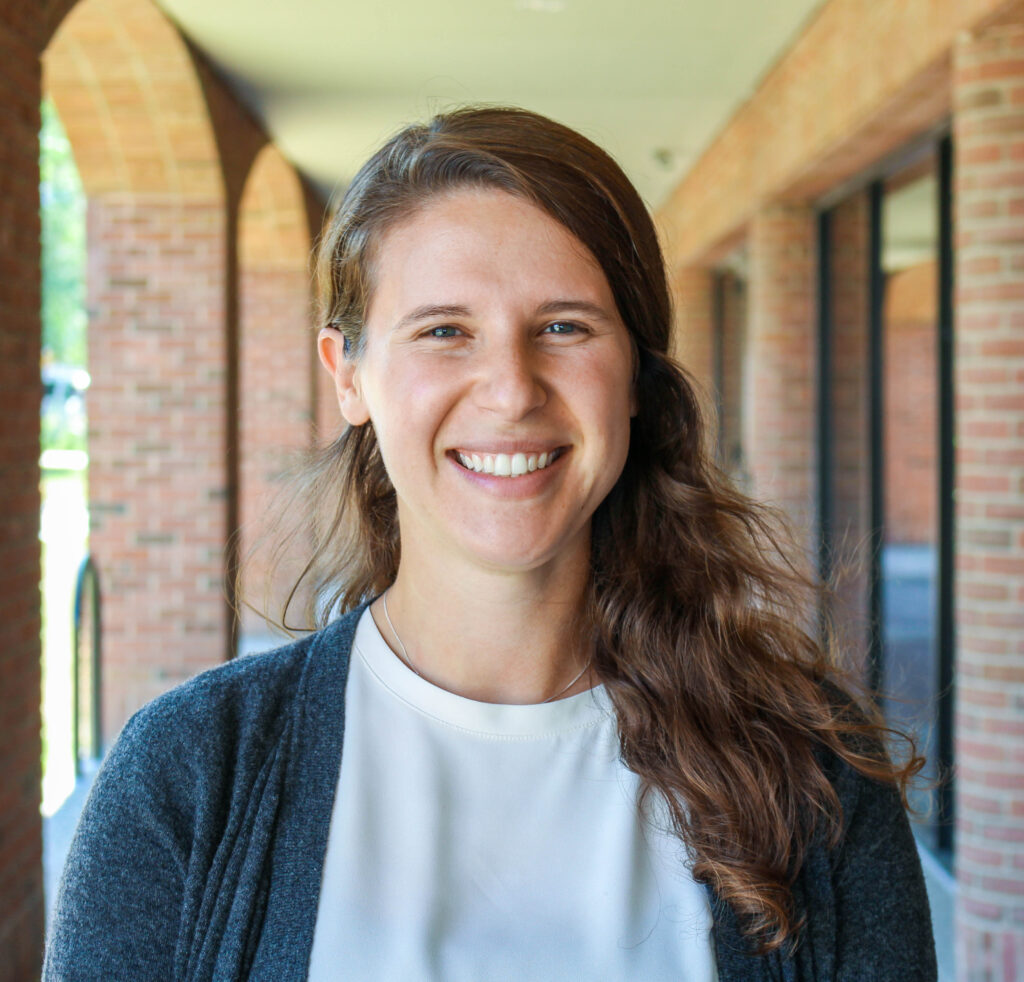Prior to coming to The Sustainable Innovation MBA, Taran had been in Washington, D.C. working as a legislative representative for national conservation organizations and later as an environmental staffer in the U.S. Senate. Taran also served two years on the executive board of DC EcoWomen, a nonprofit connecting and empowering women for environmental leadership in the nation’s capital. Connect with her on LinkedIn.

Why did you choose to attend The Sustainable Innovation MBA program?
Coming from the environmental policy world of Washington, D.C., I wanted to use a business degree to find a different way to take on the world’s most pressing environmental challenges that better utilized my strengths. What sold me on The Sustainable Innovation MBA was knowing I did not have to settle for a traditional MBA with one environmental or social justice course relegated to the end of the program. I knew I wanted to break the mold in the work I was doing, and that I wanted to learn conventional skills but apply them in unconventional ways. When I learned that this is what this program is doing, itself, in the breaking the mold of what an MBA has always been, something simply clicked for me.
What has been your favorite part/element of the program?
It was my mom who advised me to think twice before going to an MBA with a demoralizingly cutthroat culture in which, when your calculator died during an exam, the student next to you would merely smirk and turn away. I took this advice and evidently ran with it: at The Sustainable Innovation MBA, we embrace and support each other as classmates. Not only do we pump each other up for tests, collaborate on study guides and flashcards, and share pencils when the occasional Scantron bubble answer sheet appears… but I’ll admit that just a few weeks ago when I forgot my calculator during a finance quiz, Chuck (our finance professor and academic director) lent me his.
What are three things someone considering the program should be aware of?
1. You will be drinking through a fire hose. The program moves fast, and you have to move fast with it. There will not be a lot of time to stop and absorb — instead, you have to absorb on the go. This pace might not be for everyone, but if you manage your time well and remember to not let the perfect be the enemy of the good, you’ll do just fine.
2. Your classmates will be some of the best people you have ever met, and they will be a key part of why you feel so at home in this program. The diversity of backgrounds brings significant value into the classroom, and you’ll find you learn just as much from your classmates as you do your professors.
3. Perhaps most importantly, be ready to dive into your own vulnerability. Part of the beauty of The Sustainable Innovation MBA is that this program forces you to really look at yourself, examine what is particular about you and how you see the world, and how all of those things show up and shape how you’re a teammate or a leader. If you’re not ready for or at least open to this level of self-awareness and self-management, the program will be a struggle for you.
How has The Sustainable Innovation MBA benefitted you so far?
Although some of the concepts are intuitive, the business vocabulary and frameworks we learn are immensely helpful — whether analyzing an entire industry in Business Strategy for a Sustainable World to segmenting a market and deciding on a target audience for a product launch in Sustainable Brand Marketing.
What business, sector, or issue would you like to have an impact on after the program?
I hear this story repeated often: good people that are drawn to meaningful, cause-driven work (who are willing to take a pay cut and still give 110%) end up leaving these progressive movements because of poor management or disingenuous leadership. I am lucky enough to have had both challenging boss experiences and extremely empowering boss experiences. I tried to remember these lessons when I became a boss myself: to be authentic, to embrace vulnerability, and to empower my team to take risks even if it means inevitable, occasional failure. While I’m still figuring out exactly how I want to bring this into the next step of my career, I know what a powerful impact a positive leadership experience can have on employee retention. Especially for these environmentally-driven causes that simply cannot afford to lose good, mission-driven, hard-working people, I want to be a part of the solution.
Anything else?
I cannot say enough good things about the competitive broomball team we formed at the beginning of the year through UVM intramural sports. It was often the highlight of my week, and provided me with (a) a chance to get to know my classmates outside of the classroom, and (b) an opportunity to wear my sloth onesie costume as our goalie. Although we finished #2 in the final playoff standings, I’d like to think we were #1 in everyone’s hearts.
